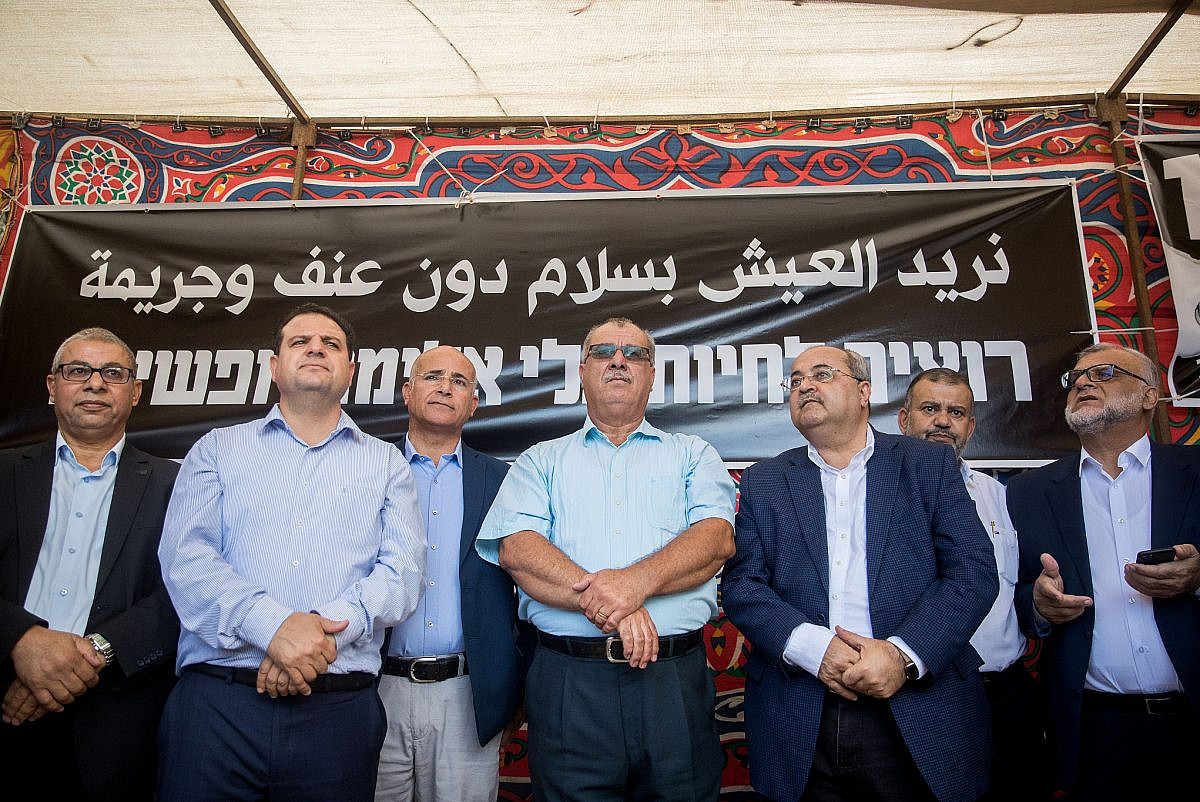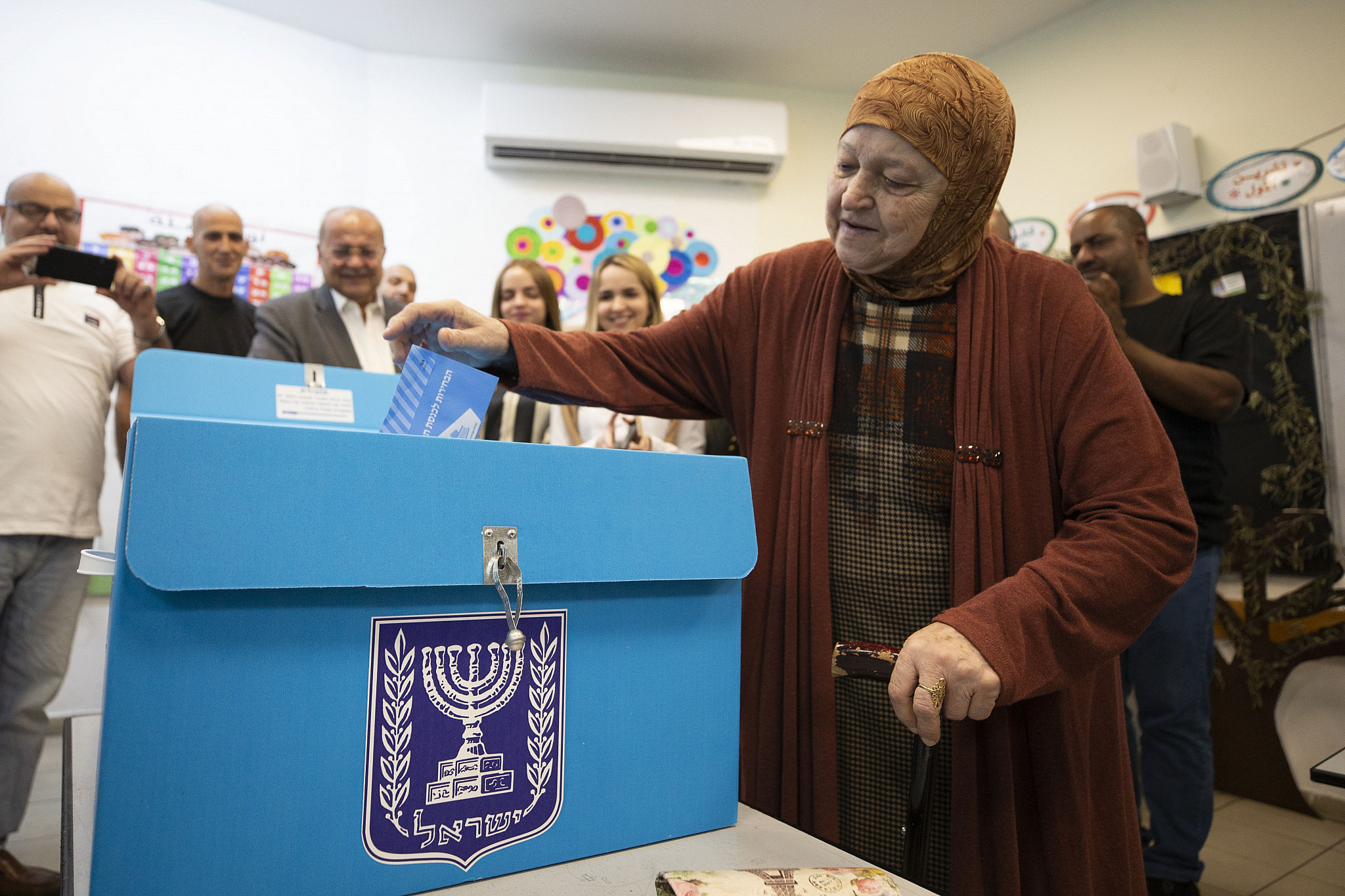The High Follow-Up Committee for Arab Citizens of Israel (HFC), the non-governmental body regarded as the national representative of Israel’s two million Palestinian citizens, has long faced criticism from within the community. But in the face of new efforts by the Israeli right to outlaw it, there is a broad consensus among the Palestinian public that recent attacks on the committee reflect an aggressive attempt to eliminate the community’s ability to organize politically.
Legislation proposing to outlaw the HFC, submitted last month by Knesset members Limor Son Har-Melech (Otzma Yehudit) and Amit Halevi (Likud), claims that the body serves as a “cover for the activities of terrorist organizations.” The evidence it offers is that the committee encouraged protests during the mass Palestinian uprising of May 2021, a period which witnessed Jewish-Arab violence inside Israel, and provided legal assistance to detainees. Demonstrations initiated during the Israeli military’s attack on the Gaza Strip last March, and its call for the release of Palestinian political prisoner Walid Dakka, were also presented as reasons for outlawing the committee.
“In a normal situation, we would say these attempts are a delusion, but the people in the coalition who are promoting them are very dangerous,” said the committee’s chairman Mohammad Barakeh. “This demand [to outlaw the HFC] cannot be separated from the judicial overhaul. Fascism in modern history depends on attacking a national minority, controlling the judicial system, abolishing the role of the parliament, and controlling the media and the economy. This is what the Netanyahu government is doing.”
Established in 1982, the HFC encompasses political parties (including those not represented in the Knesset), heads of local authorities, civil society organizations, and other members of the Palestinian citizenry. The bill to outlaw it follows an article published in April in the Makor Rishon newspaper which, relying on a report by the right-wing organization Arey Israel, claimed that the committee supported “terrorist” demonstrations in May 2021.
“What they call incitement or terrorism, we call a legitimate political position,” Barakeh said in response to the report. “Resisting the occupation is not only a legitimate position, but a first-rate human position.”
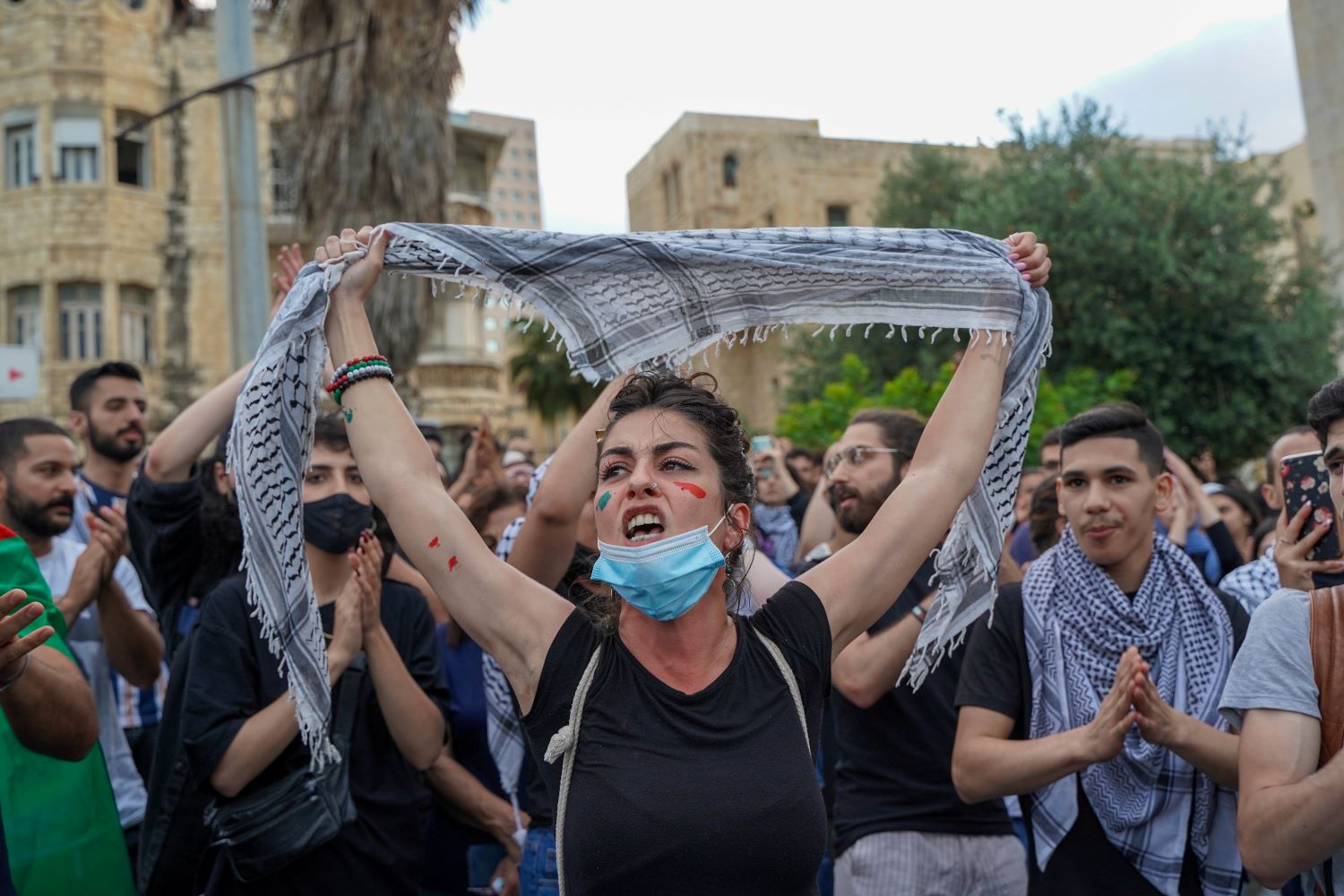
The Israeli right has for years been seeking to incapacitate Palestinian parties and organizations in Israel, succeeding in 2015 to outlaw the northern branch of the Islamic movement through an executive order signed by then-Defense Minister Moshe Ya’alon.
Meanwhile, during every election cycle, right-wing MKs attempt to disqualify the Balad party along with various Arab candidates from running for the Knesset, but the Supreme Court invariably overturns the decisions of the Knesset’s Central Elections Committee in this regard. Should the government succeed in its judicial overhaul, the Supreme Court would no longer be able to intervene on these matters, which could leave Palestinian citizens virtually without parliamentary representation.
Duaa Hosh-Tatour, a member of Balad’s political bureau, told +972: “Israel has been trying for decades to crush the legitimacy of every organization in Palestinian society. The High Follow-Up Committee is not only a political body, but has subcommittees dealing with different areas of life. Israel wants criminal gangs to run our lives.”
Researcher, activist, and lawyer Ali Haider explained that the proposed legislation “has no legal basis within the framework of Israeli law, nor within the framework of international conventions and laws, which protect the rights of national and indigenous minorities to organize.” Haider also noted that a representative of the Israeli attorney general expressed opposition to the bill.
The proposal from Son Har-Melech and Halevia also comes against the backdrop of efforts by National Security Minister Itamar Ben Gvir and Negev and Galilee Development Minister Yitzhak Wasserlauf, both of the far-right Otzma Yehudit party, to halt the economic development plan for Palestinians in Israel, under which NIS 30 billion were promised over five years.
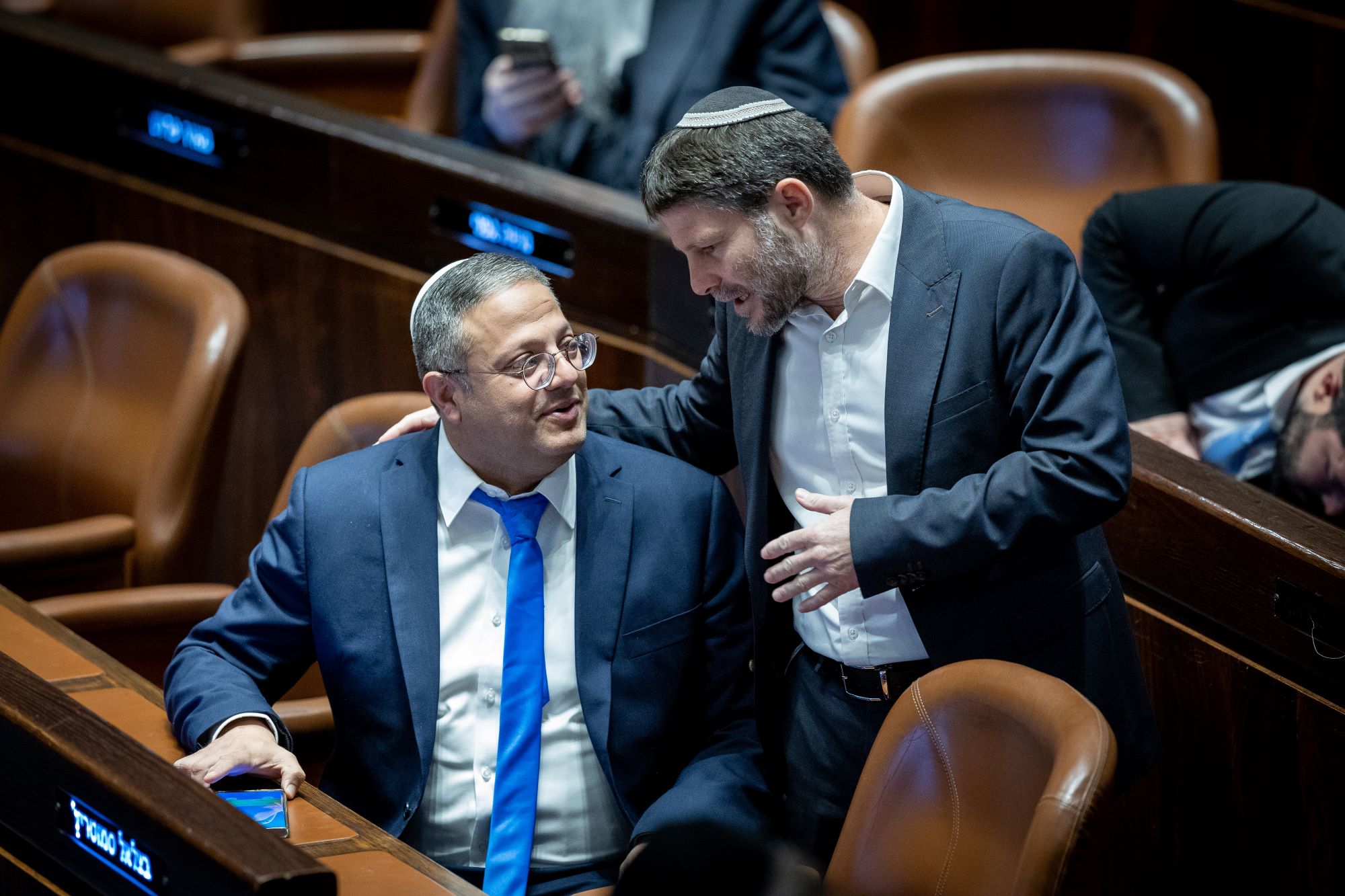
Simultaneously, Finance Minister Bezalel Smotrich announced that he was freezing millions of shekels allocated to Arab municipalities and educational programs, including in East Jerusalem, claiming they were “political coalition funds given at the request of the United Arab List and Mansour Abbas,” the Islamist party that sat in the previous Bennett-Lapid government.
‘An explicit statement that Israel is a fully apartheid state’
This is hardly the first time that the HFC has been targeted by Israeli authorities. Since its founding, the committee and its members have been monitored, arrested, incited against, and attacked by the Shin Bet, the police, and other Israeli politicians, including from the Zionist left. These efforts were part-and-parcel of wider Israeli policies that for decades have discriminated against Palestinian citizens, who continue to be viewed by the state and much of Jewish society as a fifth column, a demographic threat, and outside the realm of acceptable politics.
According to Barakeh, the effort to dismantle Palestinian society in Israel escalated after the events of October 2000, when Israeli police killed 13 Palestinians during demonstrations across the country following the eruption of the Second Intifada. He also noted the efforts to “tame” Arab society through national and military service, in addition to activities to dilute Palestinian presence in so-called “mixed cities” and to take over Bedouin lands in the Naqab/Negev. “Their whole goal is to leave [Palestinians in Israel] without leadership and broader frameworks,” he said.
Hosh-Tatour believes that Israel “is trying to undermine the trust between Palestinian society and the political parties,” describing this as a “systematic project.” She noted that the Palestinian leadership also bears some responsibility for the public’s loss of trust in it over the years, but she claimed that some critics “forgot to ask Israel [what it did], especially in the field of crime.”
For Barakeh, outlawing the HFC represents “an attack on the entire Arab society in Israel.” The committee, he explained, is the product of a decision by “a national group to establish a unified framework for all its people without dictation or coercion. We will not agree to turn back into tribes and families. I believe that the international community will not accept such a step, because it would be an explicit statement that Israel is a fully apartheid state.”
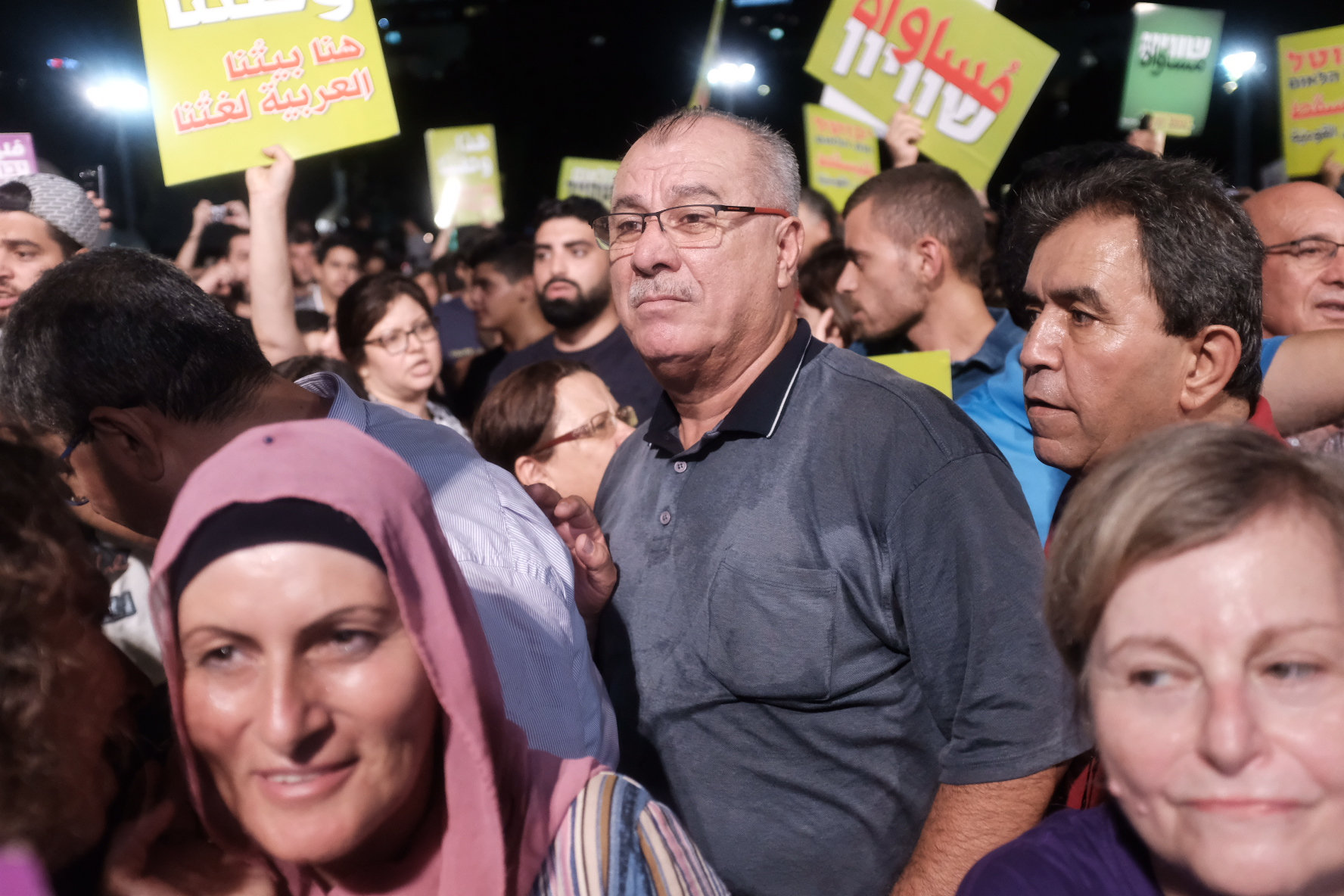
Such a decision, Barakeh went on, would also be met with widespread protest among Palestinians with Israeli citizenship. “They can do what they want, but the Arab public will not agree to become a society without leadership; it will not pass. There will be a political, legal, and international struggle. The Arab masses will not give up on this historical achievement known as the High Follow-Up Committee.”
That achievement notwithstanding, there has been much criticism of the HFC among those whom it is supposed to represent. Over the years, it has established several fairly active subcommittees on issues such as education, prisoners’ rights, and social reconciliation; the latter, led by Sheikh Raed Salah, head of the outlawed northern Islamic movement branch, was established recently to deal with disputes between different families and groupings in Arab communities.
However, the HFC itself has lost much of its influence; usually when it organizes demonstrations, attendance is poor, while a significant proportion of the strikes it calls for are barely heeded. It was also greatly outshone, albeit unintentionally, by the establishment of the Joint List in 2015, which united the four main parties in the Knesset and variably acquired 13 to 15 parliamentary seats, greatly boosting the profile of Palestinian citizens.
Haider, the lawyer, argued that the HFC’s diminished influence stems from the fact that it invested most of its efforts in a “strategy of protest,” while also allowing party and personal conflicts to affect it, which greatly harmed its legitimacy. “There needs to be a serious examination of the committee’s role, status, and structure,” he said. “A comprehensive strategic planning process needs to be initiated, which will lead to an agreement on a unified and central Palestinian political project.
“There is no disputing the need for a representative, unified, and national leadership body that reflects all [political] currents,” Haider continued. “But the current situation is characterized by the lack of a charter or clear set of basic principles that regulate the committee’s work, its decision-making process, and the methods of implementing them.”
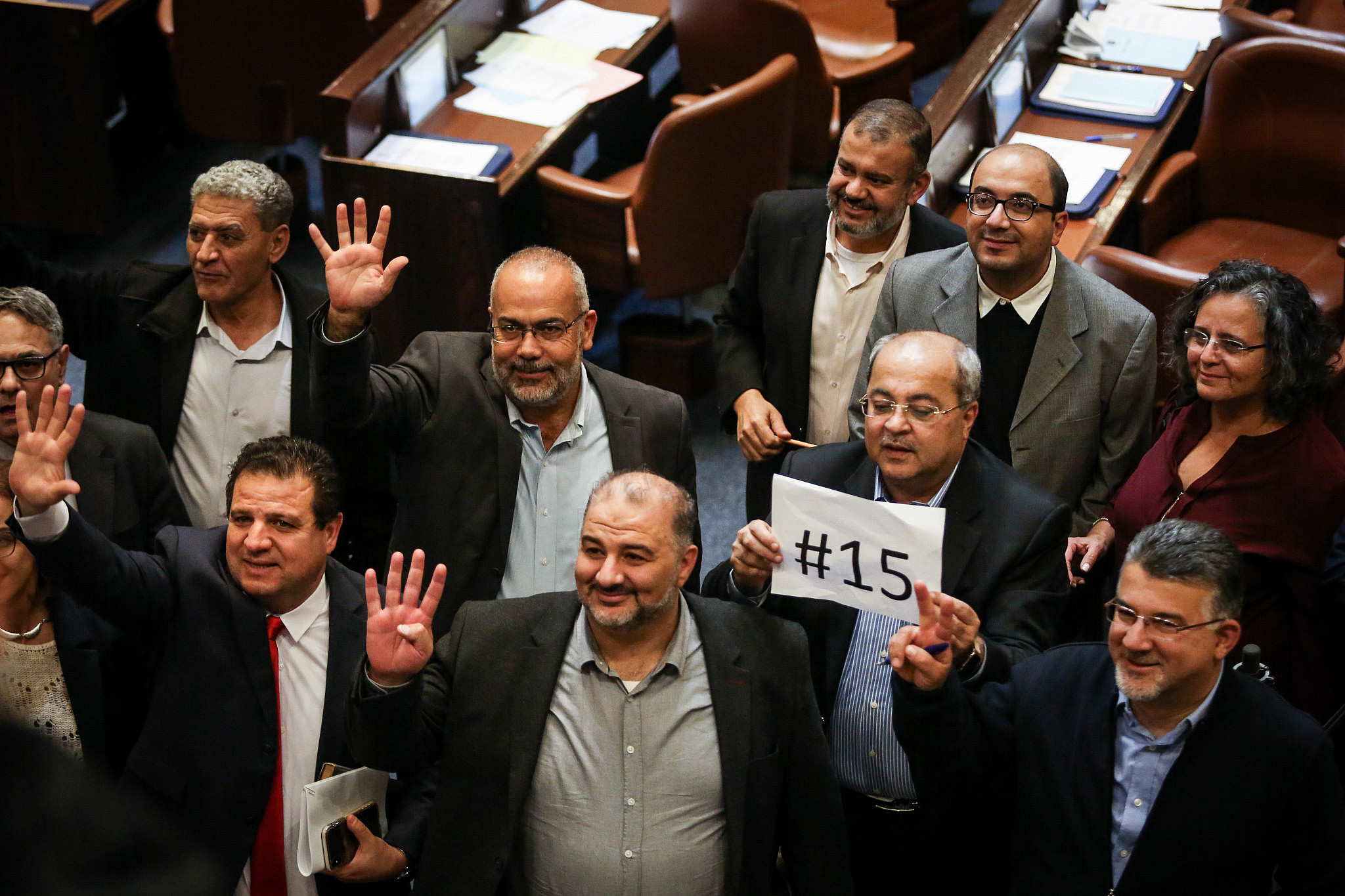
The dilemmas of HFC elections
Attempting to explain the committee’s waning power, Barakeh said “The decline of grassroots action is a global phenomenon; people are less involved in political action.” But he warns against what he described as “a culture of despair, frustration, and a lack of resourcefulness.”
“There is a group that wants to justify its helplessness by spreading despair,” he said. “It’s a small group but it makes a big noise. But whoever tells people, ‘Don’t participate,’ neutralizes activity in society.” Barakeh gave the example of the HFC’s recent demonstration in Haifa against violent crime in Arab society. “We expected tens of thousands to participate, but only a few thousand did.”
According to him, the establishment of the Joint List helped close the gaps in the political discourse and reduce competition between the parties, but its dissolution last year increased the resentment against the leadership. “The parties need to strengthen their presence among the people, especially in light of establishment mouthpieces seeking to keep people away from political action,” Barakeh said.
For Haider, one of the problems is that the public does not participate in appointing the committee’s members — including its chair — even though some of them are Knesset representatives or heads of local authorities. “There is a need to establish a supreme council for the Arab masses that will be directly elected,” he said.
An early step toward this end, he continued, would be the establishment of elected Arab national trade unions, which in turn will support and strengthen the newly elected council. “The existence of a strong High Follow-Up Committee, led by collective and national leadership, can help us get out of a significant part of our crises and deal with the plans of the racist and fascist right,” Haider concluded.
“The political parties are able to lead this project,” argued Hosh-Tatour of Balad, which has been calling for direct elections to the HFC for years. “The vast majority in our society voted for [national Arab parties, i.e. Hadash-Ta’al and Balad]. These people will vote for the High Follow-Up Committee. There is a national minority here that can determine and choose an agreed-upon national leadership.”
Barakeh does not outright reject the idea of direct elections, and says that there are discussions going on within the HFC and with public figures, but also points out the difficulties. “If the committee is a national body,” he posed, “are supporters of Zionist parties allowed to choose the leadership of the monitoring committee? Will lists based on region, sect, or family participate? Will the results be determined by whoever has more money?”
Most read on +972
All funding for the HFC, Barakeh stressed, comes from the political parties. And although a funding committee was established in the past, “the account was closed — along with the modest budgets that were in it — after the [northern] Islamic movement was outlawed,” he said. “This was by order of the Shin Bet, of course.”
Barakeh continued: “It’s tiring and painful, but there are those who don’t understand that the committee doesn’t pay salaries to anyone — not the chairman or anyone else. When financial resources are required to organize a demonstration or for a specific event, we raise funds as needed. The spirit of volunteering is very important, but the spirit of institutionalization is also important, and we are still far from a real institution.”
A version of this article first appeared in Hebrew on Local Call. Read it here.


